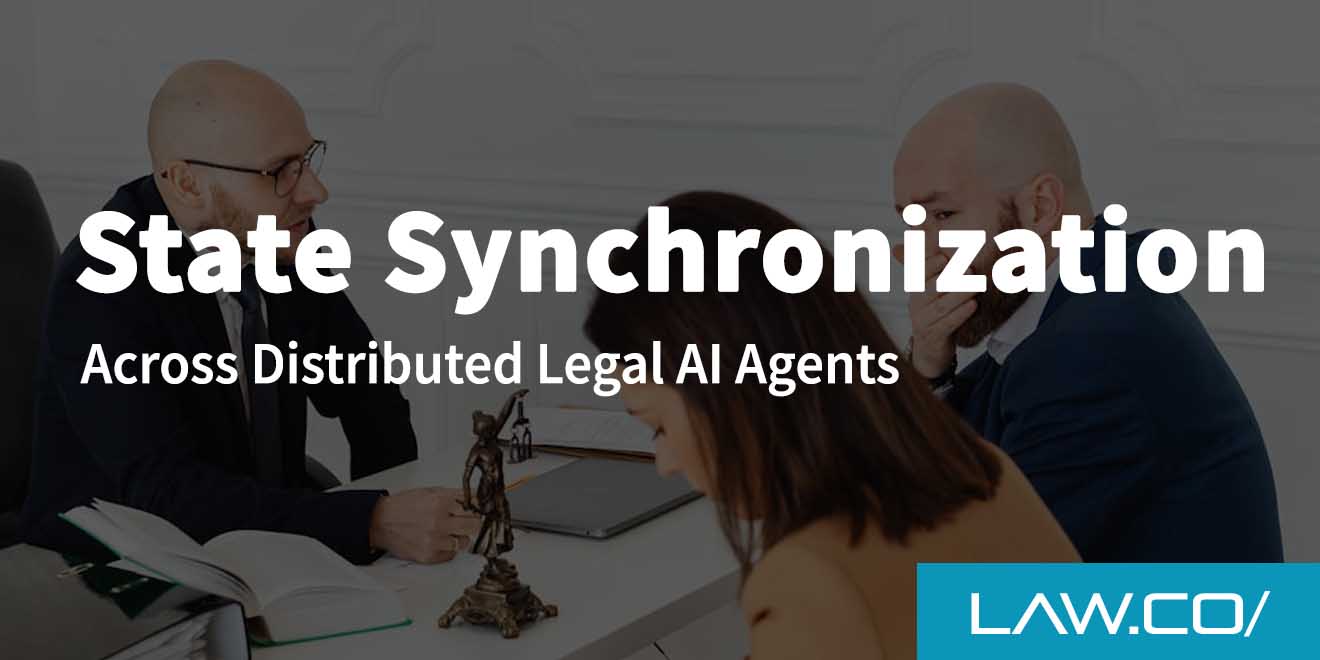

Lawyer Burnout Is Real: Here's How to Avoid Burnout Across Your Law Firm
Even people outside the legal profession know that being a lawyer is tough.
It's not really hard to understand why. The hours are long. The conditions are tough. You often have people's lives and fortunes in your hands. And on top of that, you're often working in environments with other ambitious, hardworking people who put even more pressure on you to succeed.
If you want your law firm to be successful, you need to have a plan for how to manage stress and burnout – not only for yourself, but also for your employees.
So how do you do it?
Knowing the Warning Signs
First, it's important to watch out for the warning signs. If you notice the signs of burnout in yourself, you can take a break and reset, hopefully reducing your stress in the process. If you notice the signs of burnout in others, you can connect them to resources, direct them to take breaks, and support them in their pursuit of acclimating to this environment.

These are some of the most important warning signs to notice:
· Productivity or work quality issues. Arguably the most impactful sign of burnout is declining productivity or other work quality issues. If you have a superstar lawyer who always seems to be on point, but they start missing deadlines or turning in work with mistakes, it might be a sign that something is deeply wrong. Most lawyers aren't going to do sloppy work under normal conditions, so if you notice some glaring issues, it could be a sign of excess stress.
· Irritability and behavioral changes. You may also notice irritability or other behavioral changes. If it seems like someone is easily upset at even the most minor inconveniences, or if they start suffering from strange mood fluctuations, it might be a sign that something is wrong. Behavioral changes can also indicate potential burnout; this can manifest as habit changes, changes in work patterns, and more.
· Physical symptoms. At the later stages of burnout, it can even have physical symptoms. You might experience symptoms like sleeplessness, nightmares, headaches, stomach aches, and in some cases, even greater susceptibility to contagious diseases like the cold or flu. Physical symptoms can be hard to notice in others, and if you notice them in yourself, it's often hard to tell what the true root causes are.
Ideally, you'll be able to manage stress and burnout in your law firm long before you begin to notice symptoms like these in yourself or other people.
Tools and Resources
If you're working proactively, you should secure and distribute tools and resources that make the job of a lawyer easier. With the right technology setup, your employees can save time, have an easier time getting the information and resources they need, double check their own work, and eliminate certain annoying, repetitive tasks.
One of the greatest tools at your disposal is legal AI. Legal AI tools are designed to help lawyers with practically everything, including legal research, document review, document drafting, analysis, proofreading, and much more. When your employees have access to legal AI, they can skip a lot of redundant, mundane work, and instead focus on more important responsibilities. They can save time while remaining productive, they can accelerate their own contributions, and they can feel more secure in the work they do because they have an extra review step to validate their work.
Employee Autonomy
Employee autonomy is one of the most important ingredients to maintaining a successful work environment. When your employees feel more autonomous, they feel more confident, they benefit from higher morale, and they ultimately do more productive work.
Law firms generally give their associate lawyers significant autonomy in most situations, but anything you can do to enhance this should be valuable. The more control your employees have over their own work, the less stressed they're going to be.
Work-Life Balance
No matter how you orchestrate work at your law firm, your lawyers are going to face stress. However, you can help them manage that stress much more effectively if you create a landscape and a culture that favors work-life balance.

For example:
· Flexible scheduling. Some people work more effectively in the morning. Other people work more effectively in the afternoon or evening. Some people are much more productive at the beginning of the week, while others pick up steam at the end. If you allow for flexible scheduling, you give employees more opportunities to work when they feel at their best. This is also extremely valuable for families and people with outside obligations, since flexible scheduling allows them to handle all their work responsibilities and personal responsibilities in a compatible way.
· Remote work. Although remote work can present some challenges of its own, most people find stress relief when working remotely at least occasionally. When you get to work from home, or another place of your choosing, you get to fully customize the perfect work environment and ignore some of the distractions and hassles of traditional office work. Consider giving your employees the flexibility to work remotely at least some of the time.
· Vacation time. You should also reward your employees with ample vacation time. If you not only allow, but encourage your employees to take at least one long vacation every year, they'll likely return recharged and ready to reenter the fray.
· Breaks. Similarly, you should allow your employees to take breaks at their discretion throughout the day. This way, employees get to decide how and when they want to recharge, they remain fresh throughout the day, and they get the opportunity to relieve some stress when it begins accumulating during productive hours.
· Time management resources. You should also aid employees with time management, allowing them to make sure their productive hours are productive – so they can truly relax when they have the opportunity.
Wellness Resources
You can also make burnout among your employees less likely by providing access to more resources to promote their mental health and wellness:
· Health plans. Most law firms offer health insurance packages and related benefits to their employees. These often include not only preventive screenings, but also mental health benefits that can help them better manage stress and reduce the prevalence of burnout. Review your healthcare insurance policies to make sure employees have ample access to the resources they need.
· Mental health counseling. You may also be able to provide your employees with mental health counseling more directly. You can have dedicated counselors in-house to help people. You can make recommendations for free and inexpensive mental health services in your area. You can even connect people to support groups and other helpful people and resources who can mitigate stress and burnout.
· Access to experts. Your law firm should also provide access to experts and third parties who can help with specific problems. For example, you can provide employees with information for how to get help with substance abuse and addiction cessation.
· Gym memberships. Physical exercise is one of the best ways to relieve stress, and it's a great way to stay in shape at the same time. Accordingly, you might offer your employees subsidized gym memberships as a fringe benefit, or even provide them access to gym facilities onsite.
Team Dynamics and Company Culture
Team dynamics can make a big difference in how people feel and manage their stress. If your lawyers are consistently collaborating and communicating with people they appreciate and like, the workload is going to be far easier to swallow. Conversely, if your team dynamics are imbalanced or unpalatable, even your most resilient employees may eventually become worn down.
Obviously, you can't force people to like each other, but you can hire intelligently and create teams of people who are likely to have positive chemistry together. Also, take your employee feedback seriously, collect it anonymously, and act to the best of your ability.
Your organizational culture also plays a role in how people feel and manage stress. Everyone deserves to work in a workplace that they feel reflects their values. Similarly, your law firm needs to create an organizational culture that's going to work for it. The best solution to each of these problems is to make sure you explicitly define and promote the values in your organizational culture – and hire people strategically, to make sure everyone in your organization is a good fit.
Workload Management
In your law firm, the overall workload is probably going to ebb and flow. There will be extremely busy times and extremely dead times. At any given time, there may be employees with way too much to do and employees with way too little to do.
You don't have control over all the variables here, but any measures you enact to assist with workload management can have a positive impact on your team. Make sure people who are overburdened or excessively busy have options for how to distribute their workloads – and make sure people with lighter workloads have the opportunity and motivation to take on more.
Communication
Also, keep in mind that communication has the power to prevent and solve the most problems related to stress and burnout by itself. Sometimes, simply listening to an employee event and providing them with words of encouragement is enough to help them relieve stress and keep them going. Other times, learning about the nature of the problems faced by an employee can give you the knowledge and insight necessary to help them solve those problems.
In any case, it's important to maintain a transparent, open, and accepting workplace culture from a communication perspective. Make sure that all of your employees feel comfortable voicing their opinions and concerns to you, and treat all ideas and expressions as valid (or at least take them seriously).
As we've covered, one of the best ways to help your employees manage stress and avoid burnout is to provide them with tools and resources that can make their lives easier. Legal AI is one of the best options available.
Are you ready for a legal AI solution that can help your employees work more productively – and lighten their workload at the same time?
Contact us today!

%201.svg)










